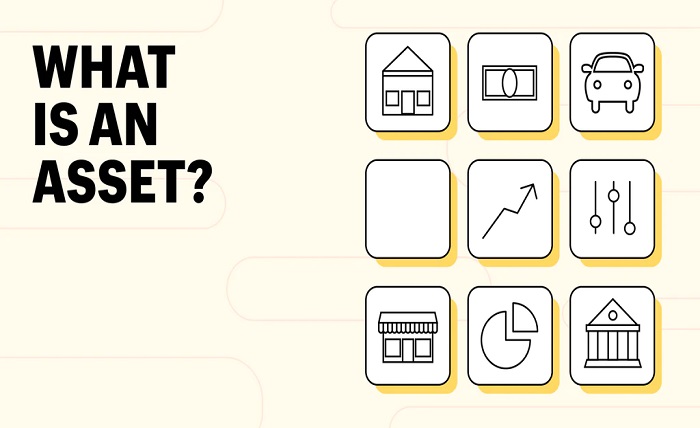Asset: A Basic Concept in Accounting and Finance

An asset is a term that refers to anything that has economic value and can be owned or controlled by an individual, a business, or a government. Assets are the resources that can be used to generate income, reduce expenses, or create value for the owners or users. Assets are one of the main components of accounting and finance, as they are used to measure the financial position and performance of an entity.
Types of Assets
Assets can be classified into different types based on various criteria, such as:
- The nature of the asset: Assets can be tangible or intangible. Tangible assets are physical objects that can be seen and touched, such as land, buildings, machinery, inventory, and cash. Intangible assets are non-physical resources that have value based on their legal rights or intellectual property, such as patents, trademarks, goodwill, and brand names.
- The liquidity of the asset: Assets can be current or non-current. Current assets are those that can be easily converted into cash or consumed within one year or less, such as cash and cash equivalents, accounts receivable, inventory, and prepaid expenses. Non-current assets are those that are expected to provide benefits for more than one year or cannot be easily converted into cash, such as property, plant and equipment, long-term investments, and intangible assets.
- The use of the asset: Assets can be operating or non-operating. Operating assets are those that are directly involved in the production or delivery of goods or services by an entity, such as inventory, machinery, and accounts receivable. Non-operating assets are those that are not directly related to the core business activities of an entity, but may generate income or incur expenses for the entity, such as investments, land held for sale, and deferred tax assets.
Read more about: thefamilystar
Accounting for Assets
Assets are recorded on the balance sheet of an entity at their cost or fair value. The cost of an asset is the amount of money or other resources that were spent to acquire or create the asset. The fair value of an asset is the amount that could be received from selling the asset in an orderly transaction between market participants.
The balance sheet shows the total amount of assets owned by an entity at a specific point in time. The balance sheet equation states that:
Assets = Liabilities + Equity
This means that the total value of the assets must equal the total value of the liabilities (the obligations or debts owed by the entity) and the equity (the residual interest or ownership of the entity).
The income statement shows the changes in the value of the assets over a period of time. The income statement equation states that:
Revenues – Expenses = Net Income
This means that the net income (the difference between the revenues generated and the expenses incurred by the entity) represents the increase or decrease in the value of the assets over a period of time.
Read more about: freejob-alert
Importance of Assets
Assets are important for various reasons, such as:
- They represent the wealth or net worth of an entity. The more assets an entity has, the more financially stable and prosperous it is.
- They provide future benefits or returns for an entity. Assets can generate income (such as interest, dividends, rent, or sales revenue) or save costs (such as depreciation, amortization, or tax deductions) for an entity over time.
- They enable an entity to pursue its goals and strategies. Assets can be used to finance new projects, expand operations, acquire new customers, develop new products or services, or improve efficiency and quality.
Read more about: downloadhub4u
Conclusion
An asset is a basic concept in accounting and finance that refers to anything that has economic value and can be owned or controlled by an individual, a business, or a government. Assets are classified into different types based on their nature, liquidity, and use. Assets are recorded on the balance sheet and the income statement of an entity at their cost or fair value. Assets are important because they represent the wealth or net worth of an entity, provide future benefits or returns for an entity, and enable an entity to pursue its goals and strategies.
Read more about: fingerlakes1



